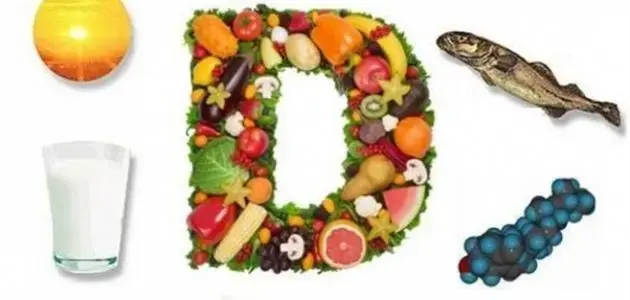What Are Vitamins?
Vitamins are organic compounds essential for maintaining overall health. They play a vital role in various bodily functions, and the primary source of these nutrients is food. There are 13 essential vitamins, categorized into two groups:
Water-Soluble Vitamins
These include the B-complex vitamins and vitamin C. Since the body does not store them, they are flushed out through urine, requiring daily replenishment through diet or supplements.
Fat-Soluble Vitamins
This group includes vitamins A, D, E, and K. They are stored in the liver and fatty tissues and are absorbed with the help of dietary fats.
Common Symptoms of Vitamin Deficiency
Vitamin deficiency occurs when the body doesn’t absorb or receive enough nutrients, leading to a wide range of health issues, including digestive problems, skin conditions, stunted growth, cognitive decline, and bone disorders.
Symptoms by Vitamin
Vitamin A (Retinol)
Sources: Liver, carrots, kale, sweet potatoes, butter, spinach, eggs, apricots, and cantaloupe.
- Night blindness
- Corneal softening (keratomalacia)
- Dry, scaly skin
- Weakened immunity
- Delayed growth in children
Vitamin D
Sources: Fatty fish, egg yolks, liver, fortified milk, and sunlight exposure.
- Rickets (in children)
- Osteomalacia (soft bones)
- Fatigue and weakness
- Muscle, bone, and back pain
- Depression
- Slow wound healing
- Hair loss
Vitamin E
Sources: Nuts, seeds, whole grains, vegetable oils, leafy greens, eggs, kiwi, and mango.
- Balance and coordination issues
- Muscle weakness
- Vision problems
- General body weakness
Vitamin K
Sources: Leafy greens, parsley, avocado, kiwi.
- Excessive bleeding
- Easy bruising
- Subungual blood clots
- Bleeding gums and mucous membranes
- Dark, bloody stools
Vitamin B1 (Thiamine)
Sources: Eggs, legumes, seeds, cauliflower, potatoes, oranges.
- Weight loss
- Fatigue
- Confusion
- Short-term memory loss
- Nerve and muscle damage
Vitamin B2 (Riboflavin)
Sources: Fish, meat, poultry, eggs, avocado, peas, nuts, leafy greens, sweet potatoes, broccoli.
- Mouth sores
- Cracked, red lips
- Dry skin
- Inflammation of mouth, tongue, and throat
- Light sensitivity and itchy eyes
Vitamin B3 (Niacin)
Sources: Poultry, meat, fish, dairy, eggs, avocado, dates, tomatoes, leafy greens, carrots, legumes, and organ meats.
- Diarrhea
- Dementia
- Skin problems
Vitamin B5 (Pantothenic Acid)
Sources: Broccoli, cabbage, white and sweet potatoes, whole grains, mushrooms, nuts, legumes, meat, dairy, eggs.
- Headaches
- Fatigue
- Irritability
- Poor muscle coordination
- Digestive issues
Vitamin B6
Sources: Chickpeas, tuna, salmon, whole grains, beef liver, meat, chicken, watermelon, potatoes, spinach.
- Depression
- Confusion
- Nausea
- Anemia
- Weakened immunity
- Skin rashes or dermatitis
- Tingling or numbness in hands and feet
Vitamin B7 (Biotin)
Sources: Liver, peanuts, sardines, avocado, banana, mushrooms, cauliflower, egg yolks.
- Hair loss
- Red, scaly rash around the eyes, nose, mouth, and genitals
- Mouth cracks and tongue ulcers
- Dry eyes
- Loss of appetite
- Depression, fatigue, hallucinations, insomnia
- Numbness and tingling in hands and feet
- Increased vulnerability to infections
Vitamin B9 (Folate)
Sources: Meat, fish, legumes, leafy greens, beets, liver.
- Diarrhea
- Anemia
- Fatigue and weakness
- Mouth ulcers
- Memory and cognitive problems
- Mood swings
- Appetite and weight loss
Vitamin B12
Sources: Eggs, cheese, milk, fish, meat, liver.
- Dementia
- Depression
- Anemia in older adults
- Tingling in hands and feet
- Severe fatigue and weakness
- Irritability
- Shortness of breath
- Pale or yellow skin
- Tongue sores
Vitamin C
Sources: Oranges, lemons, strawberries, guava, kiwi, tomatoes, carrots, peppers, cauliflower, potatoes, spinach.
- Appetite loss and weight loss
- Fatigue and lethargy
- Anemia
- Muscle and joint pain
- Red spots from bleeding under the skin
- Gum disease and tooth loss
- Poor wound healing
- Shortness of breath
- Mood changes and depression
- Severe jaundice and fever
General Symptoms of Nutritional Deficiency
While each vitamin deficiency has its unique symptoms, some general signs may indicate a nutritional gap in the diet:
- Pale skin
- Fatigue and weakness
- Breathing difficulties
- Hair loss
- Dizziness
- Constipation
- Drowsiness
- Heart palpitations
- Fainting
- Depression
- Tingling in joints
- Menstrual problems
- Concentration difficulties
Causes of Vitamin Deficiency
- Poor dietary habits lacking in essential nutrients
- Medical conditions or medications that impair nutrient absorption
- Pregnancy, especially when iron stores are insufficient for the baby
- Bariatric surgery, which reduces stomach size and can limit nutrient absorption
Leave a comment
Your email address will not be published. Required fields are marked *




